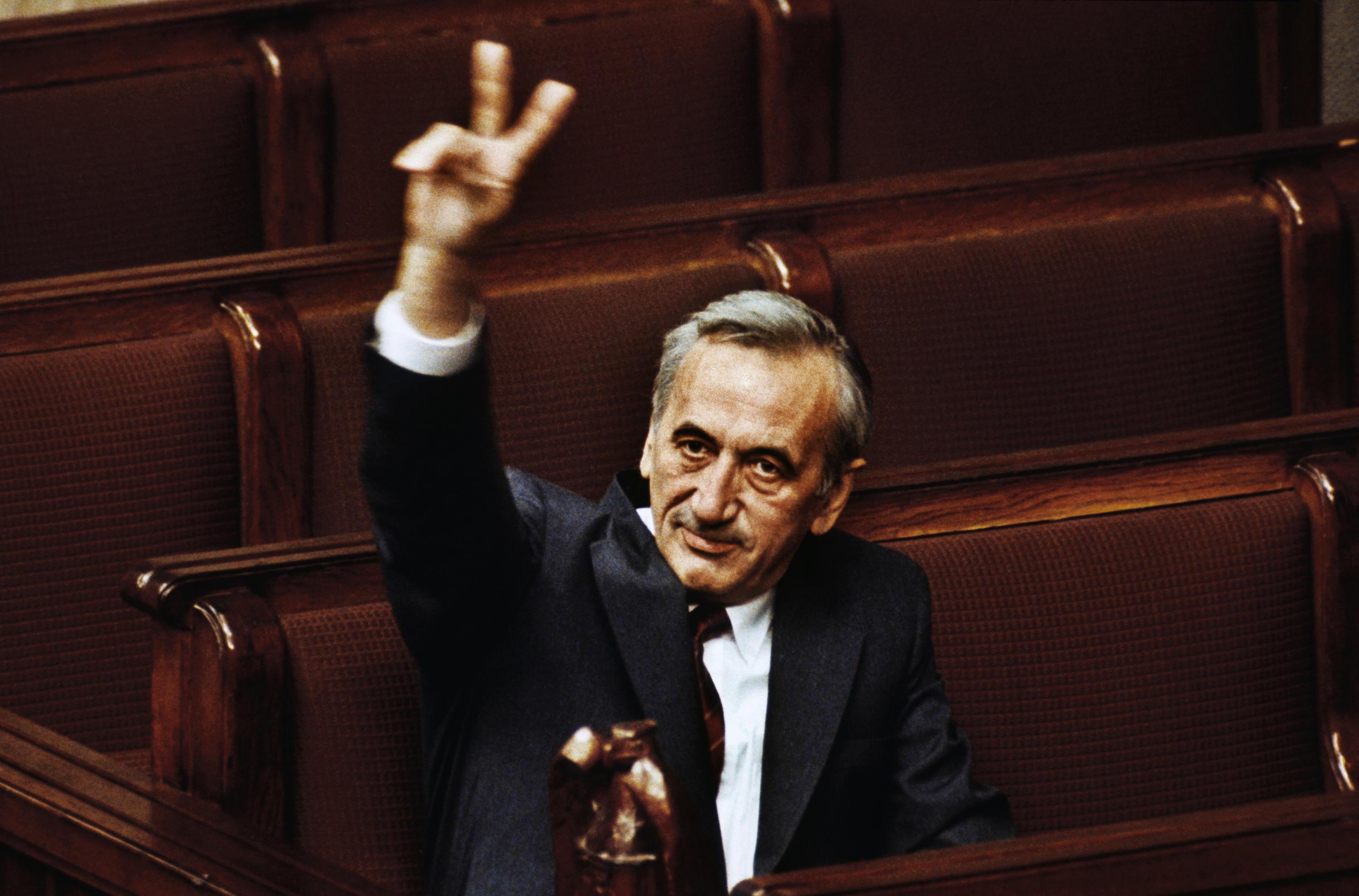Three decades ago, parliament passed a package of bills rebuilding the Polish economy – they came to be known as “The Balcerowicz plan”. The dispute over the assessment of these reforms has been ongoing since 1989. One thing is certain – it was a pioneering operation that allowed for a rapid transition from communism to capitalism.
by Tomasz Kozłowski
The year 1989 passed in Poland under the sign of extraordinary political events. At the beginning of the year, the leadership of the communist Polish United Workers’ Party (PZPR) entered into negotiations with activists from the democratic opposition. As a result, in April, the trade union “Solidarity” was legalized, and in June, partially free elections were held, which reflected strong support for the opposition. Although the PZPR, along with allied parties – The Alliance for Democracy (SD) and the United People’s Party (ZSL) – still had a majority in parliament, a time of change was approaching. Parliament elected as President, the hitherto head of the PZPR, General Wojciech Jaruzelski, but his right-hand man – Gen. Czesław Kiszczak – was not able to form a government. Members of “Solidarity” reached an agreement with the SD and ZSL, as a result of which the government of the first non-communist Prime Minister Tadeusz Mazowiecki was formed. These events have gone down in history, overshadowing another, perhaps even greater revolution, which took place in the Polish economy.

A few weeks before becoming Prime Minister, Tadeusz Mazowiecki dismissed the idea of creating a Solidarity government. He argued that the democratic opposition does not have a prepared reform agenda, and that taking power would mean the need to deal with a gigantic economic crisis and hyperinflation. The task was complicated and came with high social costs. When in August 1989, Mazowiecki was entrusted with forming a government, he referred to his earlier words with the grace of a seasoned politician: “It was not I who changed my mind, but the situation had changed.” The problem was that the state of the economy had not changed, and if it had, it was for the worse. Inflation, which was 40% in August, had already jumped to 55% in October. The situation was deteriorating day by day.
Therefore, when Mazowiecki began to look for his Minister of Finance, he was met with a series of refusals from the most prominent economists associated with “Solidarity”: Prof. Witold Trzeciakowski and Prof. Cezary Józefiak. Nobody wanted to take on such a difficult task. Even the Communists did not want to cover this ministry – a member of the Political Bureau of the PZPR, Prof. Władysław Baka, declined to accept a nomination for the post. Mazowiecki reiterated that he was looking for his “Polish Ludwig Erhard”, referring to the Minister of Economy under the government of Konrad Adenauer, who was known as the creator of an economic miracle in the Federal Republic of Germany. The mission of finding a candidate was undertaken by a close collaborator and friend of Mazowiecki – Waldemar Kuczyński. At the suggestion of Stefan Kawalec, he went to Leszek Balcerowicz.
Kuczyński tried to call him in August 1989 – but to no avail, because Balcerowicz was then preoccupied with preparations for a trip to the British Isles. In the end, however, it was possible to organize a meeting at which Balcerowicz rejected the proposal presented to him: “I told Kuczyński: you be the Deputy Prime Minister and Minister of Finance, I will be your adviser.” This answer did not offend either Kuczyński or Mazowiecki – they began to convince Balcerowicz, and eventually persuaded him. Later, at times, they probably regretted it.
Robert Krasowski in his original work on the politics of the transformation period described Balcerowicz as follows: “To say that he was rational, is an understatement – he was over-rational. Blind to emotions, almost autistic, he quickly assimilated and processed information. He stubbornly trained his mind. He spoke five languages fluently … he had a phenomenal memory. In social interactions, he was like a machine that worked methodically, guided by a cool logic and efficiency”.
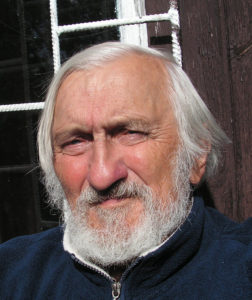
This image of the super minister is an exaggeration, but the fact is that Balcerowicz was the most independent minister in the Mazowiecki government. Without hesitation he took his own decisions over the recommendations of the Prime Minister. The earlier mentioned Kuczyński, remembered it in his diary: “Tadeusz [Mazowiecki] believes he is being forced to buy a pig in a poke, Balcerowicz disregards him and runs his own politics behind his back (…) The allegations against Leszek are partly correct. Indeed, he disregarded the Prime Minister (…) [Mazowiecki] finds it difficult to bear Leszek’s independence, which sometimes is close to anarchy and positioning himself above the government.” However, it is no wonder that the Minister of Finance had to have nerves of steel to lead the country out of the spiral of inflation and manage the entire giant state apparatus responsible for the implementation of the reform. Balcerowicz described the scale of this challenge: “I jumped from managing seminars and fulfilling the role of a scientific secretary in a small institute, to coordinating the work of many economic departments and the management of the ministry, which employed tens of thousands of people in the tax department.”
One of the biggest problems plaguing the economy was the issue of a tightening loop of debts. In the early 1980s, Poland was one step away from declaring insolvency. At that time, it was one of the largest debtors in the world, leading in this regard in the whole of the communist bloc. Hungary was indebted by 6.8 billion dollars; Romania – 9.8; GDR – 12; Soviet Union – 12.4; Poland – 24. After three years, the debt of all bloc countries decreased, except for Poland. At the end of November 1987 debt increased to 38 billion. It was comparable to the one accumulated by the several times larger and more resourceful Soviet Union. In order to implement any reforms in the late 1980s, foreign support was necessary.
In order to gain any support from the international community, it was necessary to gain the assistance of the International Monetary Fund (IMF). It not only had the power to open a credit line, but, above all, it acted as a lighthouse, indicating the path for other lenders. Before issuing the relevant decisions, the IMF always scanned the state of a country’s economy and approved a recovery plan to ensure that the debtor does not waste the funds entrusted to him. The majority of states were willing to discuss loans to Poland, provided an agreement was reached with the IMF. This was something the last communist Prime Minister Mieczysław Rakowski found out for himself.
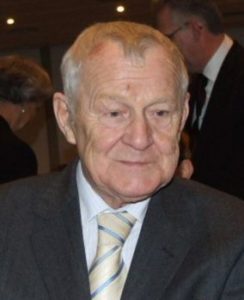
The French Minister of Finance explained to his Polish counterpart that it is possible to provide guarantees for medium-term export loans “but only after Poland had ratified an agreement with the IMF”. The Undersecretary of State at the UK Ministry of Trade and Industry, made it known that “conditions have not yet been established for the mobilisation of funding for large projects, the necessary condition (…) is that Poland must reach an agreement with the Paris Club and agree an adjustment programme with the International Monetary Fund.” Margaret Thatcher, on the other hand, in a letter to the President of the Polish Communist Party, General Wojciech Jaruzelski, expressed her satisfaction that the Polish authorities were cooperating with the IMF. At the same time, she warned: “The new economic plan for Poland for the period 1990-92 indicates an understanding of the fact that the IMF programme will inevitably bring with it serious social costs.” And this was the key problem. The Communists could not accept all the IMF’s demands because the implementation of the recommended reforms would create social unrest and would be a catalyst for the loss of power. The situation of the new Solidarity government, which enjoyed the trust of society, was different. From 1980 to 1981, “Solidarity” was a trade union fighting for workers’ rights to dignified work and pay. It was believed that the Solidarity government would act in a similar way in 1989.
The leadership of the International Monetary Fund was not interested in who stood at the helm of the government – a Prime Minister of the Communists or Solidarity. It was interested in whether the Polish government would be willing to adapt its plan to the requirements of experts and whether it would not bow to social pressure. The loss of power by the Communists and the establishment of the Mazowiecki government created an extraordinary opportunity. One IMF expert concluded: “The situation in Poland is fluid (…) we need to utilise the dynamics of the situation to push Poland in the desired direction.” The opportunity to get mutually acquainted with each other occurred with the visit of the Director of the European IMF Massimo Russo, who met in person with Mazowiecki in September 1989. The Deputy Minister of Finance warned the Prime Minister in a special note: “the decision of the IMF Board about further talks with Poland will depend on the outcome of this conversation”.
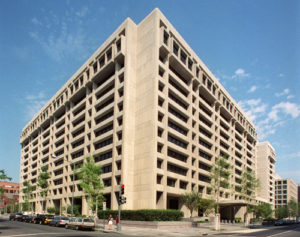
During the meeting, the Prime Minister assured the IMF delegation that “we are moving firmly towards a Western-type market economy, combined with a broad opening up of economic cooperation with all countries.” The aim of the planned reforms was amongst others getting control over hyperinflation; a solution to the problem of foreign debt; obtaining support from the international community; privatisation of a significant portion of the economy; the expansion of commercial banks; de-monopolization of industry, construction and agriculture. In return, the Prime Minister expected an exceptional reduction in Poland’s foreign debt. The IMF delegation was impressed by the Polish government’s readiness to cooperate.
The package of bills prepared by Leszek Balcerowicz went in the exact direction that the IMF expected. The Finance Minister was in favour of a solution known as “shock therapy” or “big bang” – an immediate reduction in inflation and the introduction of liberal pro-market reforms. The adoption of this strategy was undoubtedly due to his convictions and economic analyses, but it was equally important that this direction of reform was pointed out by the IMF. During a closed meeting with the “Solidarity” leadership, Balcerowicz explained: “The government’s economic programme, or the country’s overall economic programme is the subject of discussions with Poland’s creditors, especially with the International Monetary Fund. Whether the so-called adjustment programme will be signed and what the conditions will be, depends on the Fund’s decision. The Fund’s decision will influence not only, whether there will be assistance from the IMF and what form it will take, but also, all possible assistance from all Western sources will depend on this decision.” Presenting the case in this way made it easier for the Minister to push through his solutions. Michael Bruno, head of the IMF experts, was even surprised by the fact that Balcerowicz was able to choose, from several proposed options, the one that was the most radical. However, this does not mean that the IMF has not pushed for concrete solutions. The issue of debt somehow internationalised the case of Polish reform. As a result, the newly elected parliament did not have much to say on the planned economic changes.
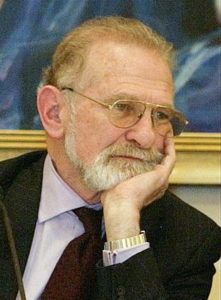
Even “Solidarity” parliamentarians were unhappy with the fact that they were not consulted on the directions of reform. At the end of September 1989 Leszek Balcerowicz went to the Washington summit, where he presented the “Memorandum on the economic reform programme in Poland and the role of foreign financial support”. The problem was that the “Solidarity” backroom of the government learned about it from newspapers. The Chairman of the Civic Parliamentary Club, which brings together Members and Senators, Bronisław Geremek, stated: “It is completely unacceptable – a situation in which members of the Polish Parliament, members of the OKP (…) learned from newspapers that there is an economic program of the government and that such a program was being presented in the US. We believe that a normal situation would be, that before it passes across the Atlantic, it should also be presented in Poland.” However, the issue of voting on the package of bills prepared by Balcerowicz, was even worse.
They were presented at such a time that MPs had no time either for a deeper analysis or debate. The pace of work was dizzying. Leszek Balcerowicz, who was accused that MPs had no idea what they were voting on, replied years later: “I am not claiming that they had full substantive knowledge, but they knew it was something groundbreaking … There were better people in the so-called Contract Sejm, there were fewer careerists, and more competent people than later on.” However, this was an overly idyllic picture. Parliamentarians had no choice but to vote on the bill at a dizzying pace. They were scaremongered into the belief that foreign aid would be suspended if the bills were not passed. This does not change the fact that some “Solidarity” politicians did believe in the rightness of these reforms. Contributing to this, was Prof. Jeffrey Sachs, a charismatic economist from Harvard University who eagerly argued for the undertaking of shock therapy in Poland. It should be noted that practically everyone – starting from Sachs himself, to Balcerowicz’s team, and also IMF experts – presented scenarios that, in retrospect, proved too optimistic. Meanwhile, Balcerowicz’s plan was a leap into the unknown.
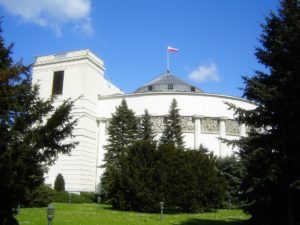
Statutory solutions introduced in early 1990s were primarily aimed at extinguishing inflation, which began galloping (in 1990 it was more than 500%). As a result interest rates were raised and a tax on over-normative payouts was introduced. Monopolies had begun to be eliminated, space for individual entrepreneurs was created and the economy was opened up to the world. Critics of the program pointed out that this opening took place at the expense of domestic producers – they were sidelined in favour of foreign imports, which were encouraged by reduced duty and the maintenance of a steady dollar rate (the so-called anti-inflation anchor). Foreign investors also had the chance to make favourable business deals due to the policy of privatisation.
Shock therapy led many unprofitable industrial plants to the verge of bankruptcy almost overnight, and as a result collapsed or were drastically restructured. According to calculations by the Ministry of Finance, in mid-1990, over three thousand companies had serious financial problems and a thousand lost their creditworthiness. Balcerowicz’s critics suggested that uncompetitive industrial plants should be supported, at least in a limited way. In 1991, the Economic Council of the Council of Ministers, led by Prof. Witold Trzeciakowski (who rejected the proposal to become Minister of Finance made by Mazowiecki), criticised the direction of transformation in its working position: “the demolition of the old order must be-within certain limits – balanced by building a new one”.
It was not just about unprofitable companies – the reforms had serious consequences for society. Real wages fell by around 25 percent in 1990. The collapse of some of the industrial plants led to the liquidation of jobs. The symbol of this was the fate of the State Farms, which were liquidated in 1991. They employed almost 400,000 people, and their restructuring, forced many local communities into poverty. Historian Jan Piskorski noted that “amongst those in Polish elites after 1989, we can hardly find any people who saw the danger in the decay of the Polish countryside and the collapse of factories. Along with them, local infrastructure and culture collapsed: rail and bus connections, canteens, nurseries, schools and libraries”. People who lost their jobs or fell into poverty did not blame the bankruptcy of the socialist economy, but the Balcerowicz plan. In the short term, the consequence was growing waves of social protests, which began in 1990. A year later, as many as 300 protests were recorded.
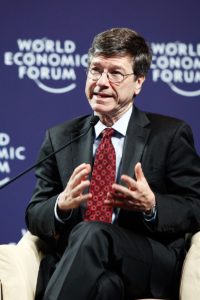
The long-term consequence became the birth and consolidation of a black legend of transformation in the national memory. Interestingly, assessment of the reforms was strongly correlated with belonging to specific social groups. Opinion polls conducted at the beginning of 1995 showed that 30% of Poles considered the results of reform as positive, 25% as negative. Proponents typically came from intellectuals, private entrepreneurs, people in a more privileged situation and the educated. Among the opponents, could be distinguished farmers, workers, pensioners and housewives, those with lower incomes and lower levels of education and those living in the countryside. The problem was also that the groups for whom the reforms helped to develop and achieve their ambitions, were not willing to see the costs paid by others. Jan Piskorski, quoted earlier, noticed that “the urban intelligentsia, allowed itself to be deceived by the allure of neoliberal-capitalism, according to which all problems could be solved by the market. Intellectuals long remained uncritical of the transformation.”
The economic reforms introduced by Balcerowicz were undoubtedly a success of the first Solidarity government. However, disputes still remain out over the price that came to be paid for this success. For years the question returns: would it have been possible to carry out changes at a smaller social cost, without introducing Darwinist, neoliberal treatments? Jacek Kuroń, a legendary oppositionist and one of the most important ministers in Tadeusz Mazowiecki’s government at the time, was an avid supporter of shock therapy – he was convinced by amongst others Jeffrey Sachs and Leszek Balcerowicz. After years, he self-critically judged the situation, saying: “At that time, in the Council of Ministers, I had influence, not Balcerowicz. I fueled this plan of his and this is, no doubt, my sin.”
Critics of Balcerowicz’s reforms often forget about the influence of the accumulated economic crises of the Eastern Bloc states. The whole region was heavily affected. In Poland, the collapse of trade with the Soviet Union led to the brink of bankruptcy or the collapse of about 300 companies that had specialised in production for this market. Polish exports to the East fell. It was a significant burden on the country’s economy. It is worth mentioning that at the same time, the collapse of economic exchange with the Soviet Union was, in addition to the shortcomings of the banking system, one of the main causes of the so-called Nordic banking crisis, which also affected Finland.

The dispute between supporters of Balcerowicz’s reforms and so-called gradualists , calling for the need for evolutionary changes secured by social programmes, will continue. However, even Prof. Grzegorz Kołodko, one of Balcerowicz’s more well-known critics, notes that “while the distance between the statements of both sides resembles an abyss, the distance between their actions is like a narrowing canyon”. Poland did not have full freedom in choosing its path. The collapse of the socialist economy, gigantic foreign debt, the need to accept prescriptions given by the IMF – are the main elements dictating the pace and direction of changes and forcing the economic leap into the unknown.
Author: Tomasz Kozłowski – PhD in political sciences, employee of the History Research Office of Institute of National Remembrance
Translation: Blanka Konopka

